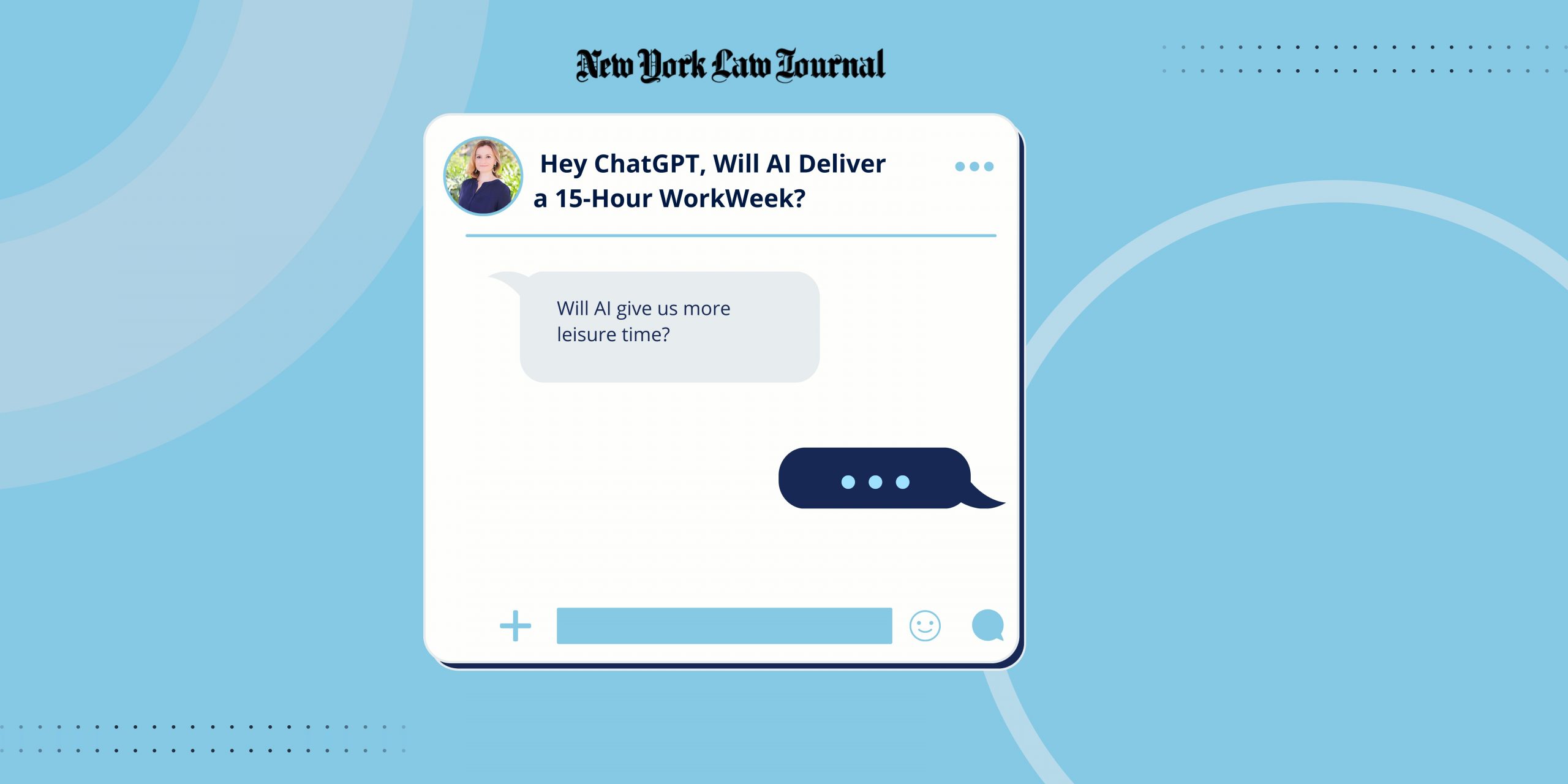
Ioana Good discusses several issues to consider both the positives and negatives of AI
Published in the New York Law Journal
By Ioana Good
For nearly a century, predictions have been made that automation would result in less work and more leisure time. Economist John Maynard Keynes famously predicted in 1930 that by the time his grandchildren were working age, the standard work week would be 15 hours long. These predictions continued throughout the 20th century, citing intelligent machines and automation as the driving force for less work and more time to relax. Some worried that the problem we would face was how to fill our free time and that we may become a society of “wholesome degeneracy” – yikes! With 2023 being dubbed “the year of AI,” are we poised to be soon stressing about how we’ll spend all our free time…yeah probably not.
Artificial Intelligence (AI) and Chat GPT seem to be on the top of everyone’s minds these days. Industries and disciplines are exploring how they can use AI to add value and gain competitive advantage. No doubt, AI is becoming increasingly popular in the marketing world. It has the potential to revolutionize how marketers interact with clients and prospects, approach and analyze data, and improve the effectiveness of interactions and campaigns. However, as with any technology, there are pros and cons that should be considered before jumping in head-first.
“As legal marketers, we’re entrusted with safeguarding our firm’s brand. In many cases, customer relationships have been built over long periods of time. AI is certainly exciting, but we must weigh both the risks and rewards,” says Jon Mattson, Chief Marketing and Business Development Officer at Stinson, LLP.
Here are a few things to consider on both the positives and negatives of AI; click here (subscriber-based).
